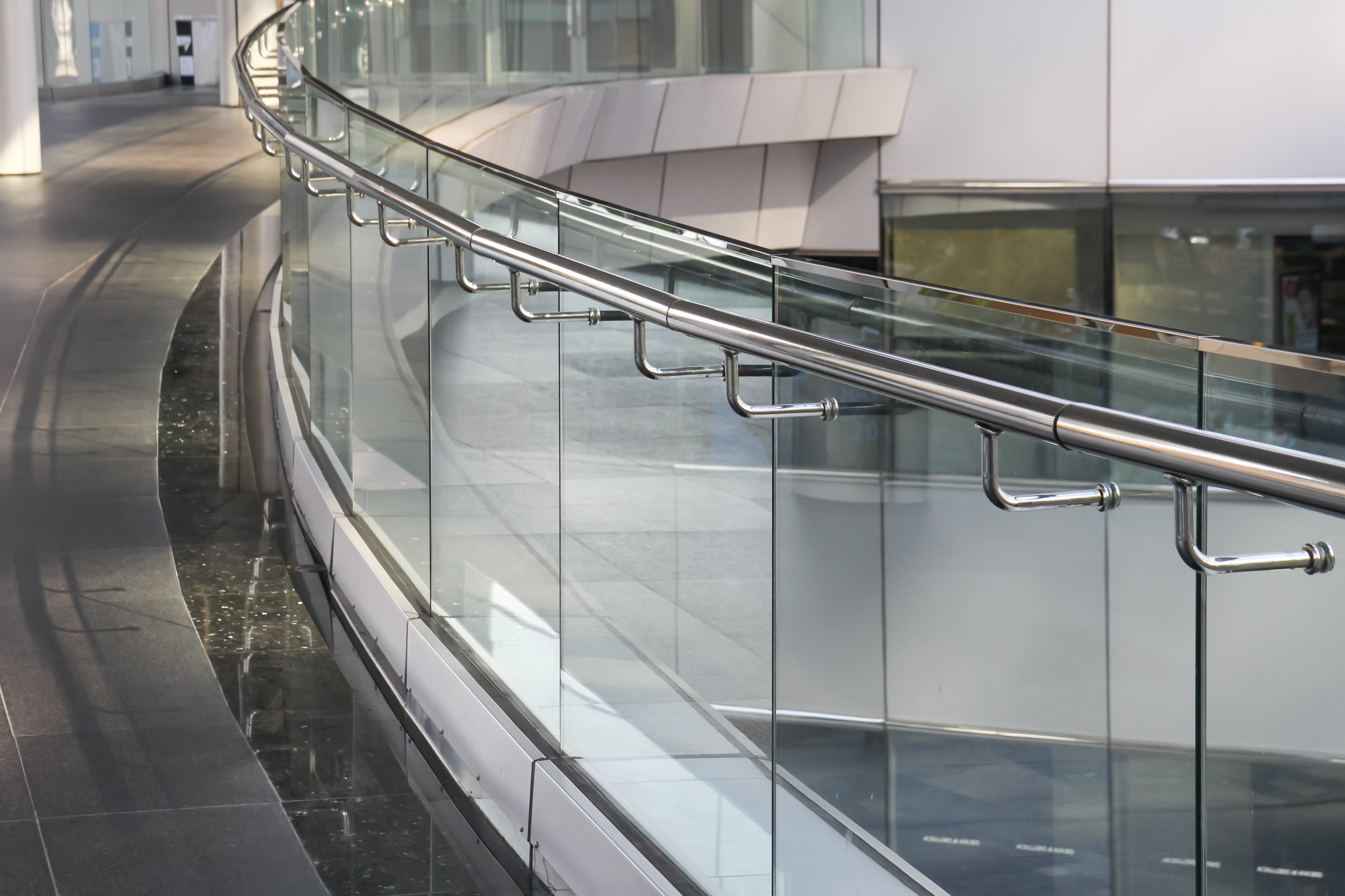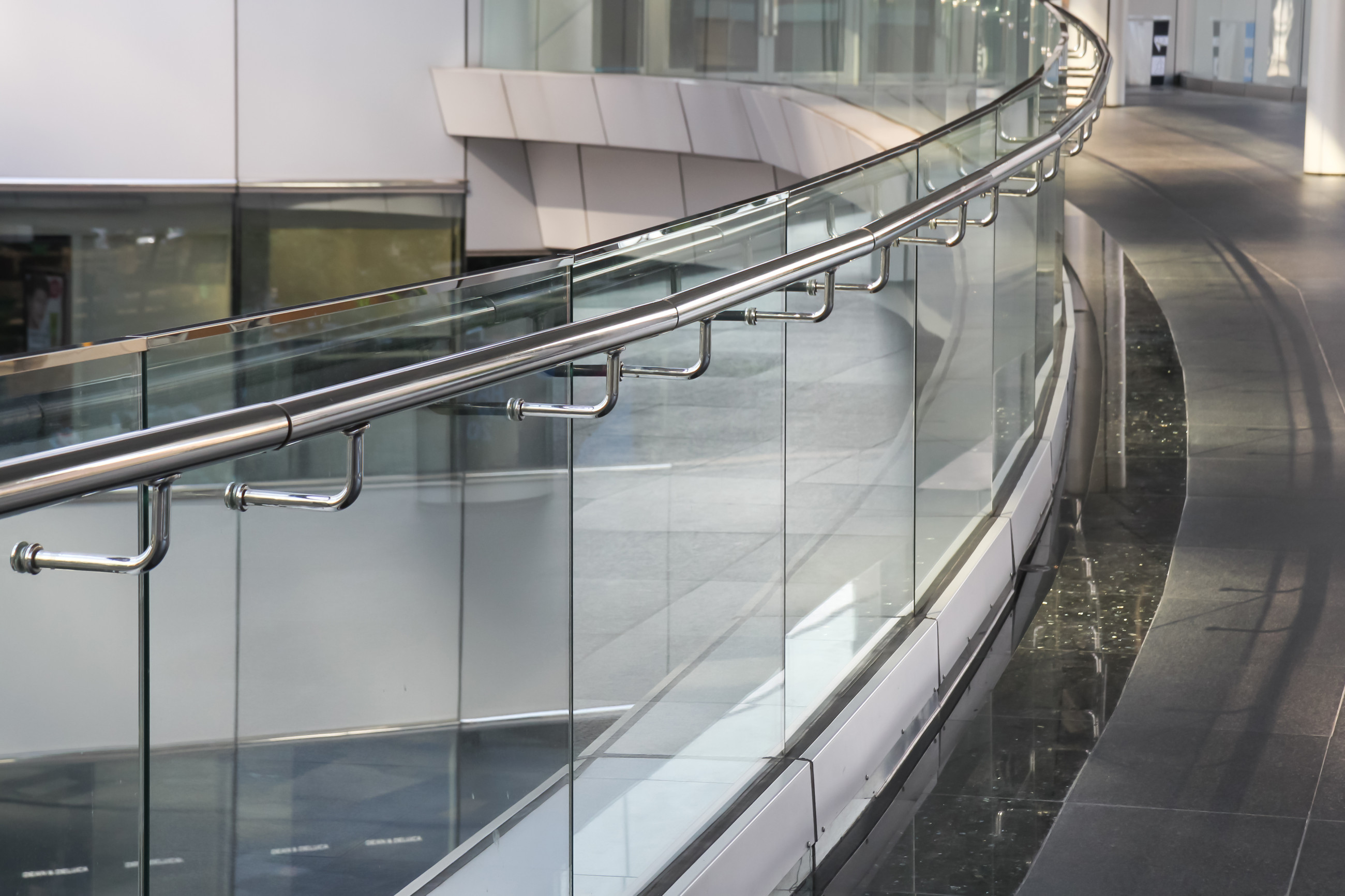TempaFloat™ - toughened safety glass
Metro Performance Glass uses the thermal toughening process to create TempaFloat™ toughened safety glass. Thermal toughening takes a relatively short time and can be applied to most float glass types. Toughened safety glass is also commonly known as tempered glass.
TempaFloat™ toughened glass is produced by first cutting and processing sheets of standard float glass, which are then loaded into a furnace that has a bed of oscillating rollers. The glass is heated to a plastic state at around 650°C, then the glass is moved into the quench area where it is rapidly cooled by a series of high-pressure air nozzles.
This rapid cooling (or quenching) induces high compression stress in the upper and lower glass surfaces, while the centre remains in tension. Although the physical characteristics remain unchanged, the additional stresses created within the glass alter its mechanical properties.
The compressive stress in the glass surface means that TempaFloat™ toughened glass has increased strength compared to annealed/float glass.
Any cutting or grinding must be done prior to tempering as cutting, grinding, and sharp impacts after tempering are likely to cause the glass to fracture.
Tempafloat™ benefits
TempaFloat™ toughened glass is a Grade A safety glass.
TempaFloat™ toughened glass has a higher mechanical strength compared to annealed glass of the same thickness and is typically 4 to 5 times stronger.
The glass is much harder to break than annealed float or laminated glass. If broken, due to the changes in the glass structure during the toughening process, the glass will “crumble” into small fragments, rather than splintering into potentially dangerous shards as annealed glass does.
Has a higher thermal resistance when compared to annealed glass, able to withstand temperatures of up to 300°C for a brief time period, and temperatures of up to 250°C for extended time periods.
Because TempaFloat™ toughened glass has such a high mechanical strength, it can be used with mechanical attachments such as patch, spider, hinge, point and countersunk fixings.
TempaSoak™ (heat soak tested safety glass)
Heat soaking is a secondary heat treatment process which substantially reduces the likelihood of toughened safety glass breaking spontaneously after installation.
This secondary process (completed after the thermal toughening of the glass), reduces the chance of spontaneous breakage from 1 in 10,000m2 to 1 in 1,000,000m2 (Glass and Glazing Federation UK).
TempaSoak™ (heat soak tested safety glass) is recommended for any toughened safety glass (including toughened laminated safety glass) that is in a critical location for safety, or would be difficult to replace (eg glass floors, high -rise structural glazing).
Please note: soft coat Low-E glass is generally not suitable for heat soak testing – contact your local Metro Representative if this is being considered.
Background
During float glass manufacture, impurities in the glass batch can result in inclusions in the finished product. These inclusions are so small that they are normally invisible to the naked eye and may not all be detected by the float glass production scanners. The most well known of these inclusions is nickel sulphide (NiS) crystals/stones, which can be contained in the raw material during the production float glass.
The glass toughening process requires the glass to be heated to just below its softening point and then rapidly cooled. Because this heating and rapid cooling process induces substantial tension in the glass (increasing its strength), inclusions in the tension core can cause spontaneous breakage, as they are known to change phase and expand some time after the toughening process.
Heat soak testing is a reliable way to reduce the likelihood of undetected inclusions causing spontaneous breakage of toughened safety glass.

